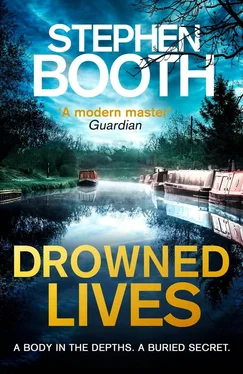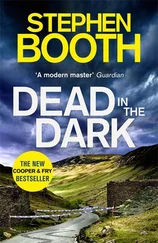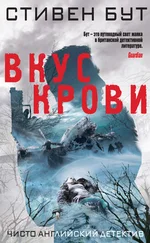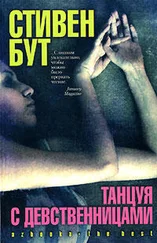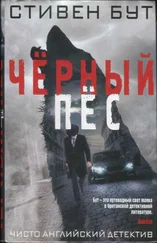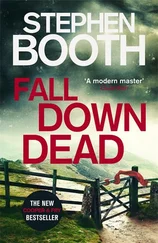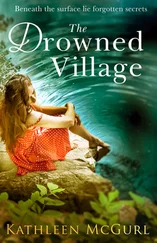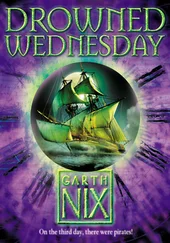‘Of course, of course. Anything you can offer will be gratefully received.’
‘So what about Caroline? I could present myself as an independent researcher.’
‘Mmm. I don’t know. She might resent a stranger interfering just as much as she resents me.’
‘Let’s leave that for now, then. It might be worth considering later.’
She pulled out her notebook, in which a page was covered in jotted notes like subject headings, complete with underlinings and asterisks and question marks. I was impressed by her organisation. She’d certainly given the project some thought. In fact, I was so irrationally pleased that I almost forgot my beer in the simple enjoyment of sitting and listening to her speak.
‘The way I see it, there are basically two ways we can approach your family history,’ she said.
‘Right.’
‘Obviously, we have to start from a known point. But we’re lucky in this case, in that we have a certain amount of information about both ends of the line.’
‘I’m sorry—?’
‘What I mean is, the usual way to trace a family tree would be to start with yourself as the known point. You then work backwards from your parents’ wedding certificate to their birth certificates to get information about their parents, and so on as far as you can go, picking up as much detail as you can about each individual. Then you can gradually fill in the tree. That way, you’re going backwards through history. Right?’
‘That makes sense.’
‘The other way is to move forward. Since we know something about William Buckley and his immediate family, we could start in 1800, and come forward. It means you’re less likely to miss collateral relatives such as brothers and sisters, who could be important in this case.’
I nodded admiringly. ‘You sound as though you really know what you’re doing. Which approach do you recommend?’
‘It depends.’
‘On what?’
‘On how much you know about your parents and grandparents. Can you provide full details of their marriages and births? Have you got certificates or documents? If so, how far back?’
‘Ah. There may be a problem there.’
‘You’d better tell me.’
I explained to her about the mysterious rift in my family, and the secrecy that still surrounded it. I told her I’d never been one to wonder much about my ancestors until now. She looked more shocked at that than anything.
‘You don’t sound very inquisitive,’ she said. ‘Most people like to know as much as they can about their ancestors.’
‘I don’t understand why.’
‘It gives them a sense of identity. Don’t you feel a need for that, Chris?’
‘My identity is what exists now. It doesn’t owe anything to ancient history.’
‘I take it you’ve heard of genes and chromosomes?’ she said drily.
I held out my hands. Why was this so difficult to explain? ‘Look. I may be made up of genes and chromosomes. But once I was formed, that was it. It doesn’t matter where those genes came from. They might as well have fallen together by accident, as far as I’m concerned. What’s the difference between that and a series of couplings between people I never knew over periods of history that mean nothing to me? It doesn’t affect my identity to know whether a distant ancestor was a beggar or a prince. My genes are my genes, and I’m the product of now , not then.’
Laura simply shrugged at my little speech. ‘Fine. It’s a very blinkered outlook, but a point of view all the same. At least you’ve thought about it. But if you’re not interested in your ancestry, why are you doing this?’
‘Fifty thousand pounds, that’s why. I’m not researching my family history because I want to know about my ancestors, but because I’m getting paid. I need the money, I don’t mind admitting.’
She made a note in her book. Another subject heading? ‘Mercenary tendencies as a Buckley family trait’?
‘We’ll start at the beginning then, shall we? With William Buckley, the engineer.’
‘Okay.’
‘If I’m going to do some research, I need to get up to date with all the information you already have. So I need to read Samuel’s manuscript.’
‘Oh.’
‘Anything wrong with that?’
Nothing, except that I’d loaned it to Rachel. Now I’d have to get it back from her.
‘No. No problem.’
‘And William Buckley’s letters?’
‘I think I told you, they’re being transcribed by my neighbour.’
‘You said it was a friend.’
‘Well, yes.’
‘How long does it take to transcribe a few letters?’
‘I’ll ask her how she’s getting on.’
‘The originals would be preferable. And we’ll see how we go from there, shall we?’
She closed her notebook and finished her drink.
‘Another?’ I said. ‘Whatever it is?’
‘Thanks, but no. I’ve got a lunch engagement.’
‘Oh, right.’
‘Are you okay, Chris? Disappointed with a lack of progress so far? We’ll soon change that.’
‘No, it isn’t that. Well, I suppose it might be. Frank Chaplin was a bit of a letdown.’
‘You won’t find me a letdown.’
‘I’m sure.’
She gave me her smile as she rose from the table. I gazed up at her, wondering who her lunch engagement was with, and whether she’d have dinner with me one night, if I had the courage to ask her.
‘We’ll talk again soon,’ she said.
‘I’ll look forward to it.’
When I got home, there was a message on the answerphone from Dan Hyde. Far from seeming worried, his voice sounded positively gloating as it echoed tinnily from the machine.
‘Er, Chris. We’ve got a crisis. The thing is, I had a phone call from Poole House Design again. They won’t release the designs for the website until we pay their last invoice. Now some of our advertisers have cottoned on to the fact that winningbid.uk.com won’t be launching any time soon. Word gets round, you know. The phone here has been red hot. They want their money back, mate.’ He paused. I could have sworn that he was breaking off to take a drink. I could almost taste the alcohol myself. ‘If we don’t cough up pretty quick, we’ll be taken to the cleaners. What we need to do is hold Poole House off for a while. We have to promise them something, give them a prospect of being paid back. Call me with your ideas, mate.’
I abandoned plans for defrosting a chicken tikka and walked up to the Stowe Arms for a pie and chips in the sort of surroundings that could take my mind off things for a while. The effort to distract my mind took all afternoon — and it wasn’t entirely successful.
I noticed the BMW parked outside Maybank as soon as I turned the corner from Gaia Lane. It’s the sort of street where you notice these things, even when there isn’t a thickset man sitting at the wheel watching you with a covert intensity.
He was out of the BMW quickly enough to waylay me between the gate and my back door. I don’t know why I felt threatened. He could have been another policeman, or he could just as easily have been a Jehovah’s Witness or an insurance salesman. But my instinctive reaction was to seek an escape route as he approached. My key was in my hand, and I was looking round for Rachel, as if she might be a guardian angel watching over me. But for once, she was missing.
‘Mr Buckley?’
‘Yes?’
‘Christopher Buckley?’
‘That’s me all right.’
‘My name’s Leo Parker.’
‘Oh?’
Then I stopped looking past him at the road and focused on his face. I recognised him then. He was the man who’d been with the MP, Lindley Simpson, at the meeting in Boley Park Community Centre. The squat shape and heavy shoulders under the dark coat were unmistakeable.
Читать дальше
